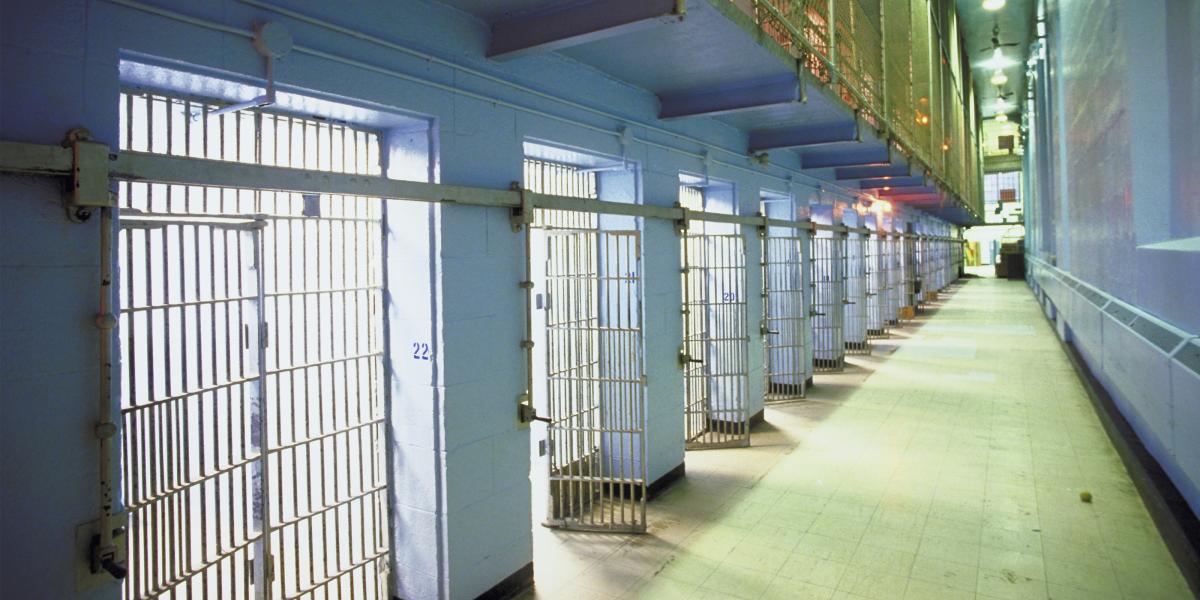Putting Health Behind Bars
Gabe Eber, a staff attorney with the ACLU’s National Prison Project, pulls a report from his files.
The inmate, an older man suffering from diabetes and hypertension, was admitted to a Mississippi prison infirmary in a weak and confused state. In his medical record, Eber says, the prison doctor described the man as manipulative and likely malingering. After six days of worsening health, he was transferred to a hospital where he was treated for a myocardial infarction, dehydration and renal failure. He died two weeks later.
“The patient’s death wasn’t even documented in his medical record,” says Eber, JD, MPH ’02, who recently made a temporary move from the courtroom to the classroom to join the teaching team of the weeklong Health in Prisons course, which debuted this year in the School’s Summer Institutes.
Eber, who helps to prepare class action suits to improve medical and mental health services for prisoners, sees some of the worst health care in the U.S.
“Putting people in a closed stressful environment and ignoring their health needs is a recipe for death and, frankly, death through great suffering,” he says. “Imagine being in a cell, denied your insulin, and as a diabetic, knowing exactly what’s going to happen to you.”
The U.S.—the world’s largest jailer—houses more than 20% of the global prison population.
For Eber and course organizers—faculty Gilbert Burnham, MD, PhD, MS, and Leonard Rubenstein, JD, LLM—prison health care is a public health crisis that has been ignored for too long.
“We’re talking about a population with very limited autonomy and high exposure to risks being cared for in a fragmented and disorganized system,” says Burnham, International Health professor and co-director of the Center for Refugee and Disaster Response.
The Geneva-based International Committee for the Red Cross (ICRC), which collaborates with Burnham on the Health Emergencies in Large Populations (HELP) courses, approached him with the idea of developing a course about providing health care in prisons for professionals in the corrections field and for public health professionals interested in working in this field.
He and Rubenstein, a senior scientist at the Center for Public Health and Human Rights and faculty member at the Johns Hopkins Berman Institute of Bioethics, hope that the course is a first step in raising awareness of the issue in the public health community. They say that the class is the first of its kind in a school of public health.
The challenges are urgent and daunting—especially in U.S. prisons and jails, which hold 2.2 million prisoners and detainees, more than 20 percent of the global prison population: caring for an aging prison population with complex health conditions, chronic disease management, mental health diagnoses, inconsistent health care standards, massive overcrowding and health concerns in connection with solitary confinement and hunger strikes.
Rubenstein and Burnham say that the problems demand public health expertise—surveillance, data collection and analysis, and monitoring and evaluation—to develop health protocols and policy reforms, and address serious medical ethics issues.
The course attracted 19 students from 10 countries and examined prison health from domestic and international perspectives. Instructors included medical and legal experts in prison health care from the ICRC, Hong Kong, Finland, Germany, India, Canada, Israel, Switzerland and the U.S.
Discussions of foreign prison systems revealed fundamental differences with the U.S. in the provision of health services.
Instructors from Israel and Switzerland explained that unlike the U.S. model, prison health care workers in their countries report to government health officials, not corrections supervisors. This clear separation of roles helps to avoid ethically questionable situations that often arise in U.S. prisons concerning the force-feeding of hunger strikers and solitary confinement cases.
“Medical participation in force feeding undermines the doctor/patient relationship and involves health professionals as adjuncts to security officials who want to end what amount to political protests,” says Rubenstein. “Medical care for hunger strikers should be based on … independent medical judgment and respect for patient autonomy.”
While the Health in Prisons course was developed primarily as a continuing education course for corrections health care professionals, organizers hope to soon adapt the class for the MPH curriculum. Long term, they envision a professional track in prison health as part of a degree program.
“Improving health in prisons in the U.S. and the world calls for the same levels of expertise and resources and commitment that the public health community dedicates to other issues,” says Eber.
